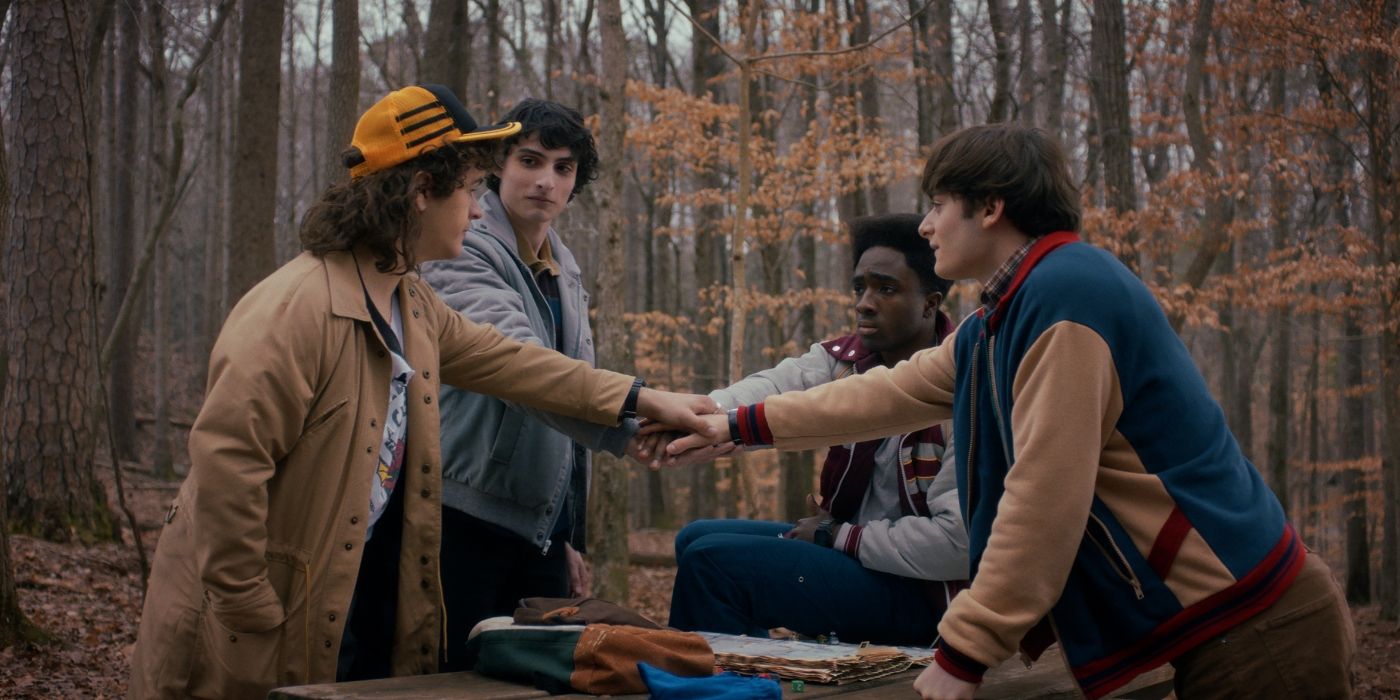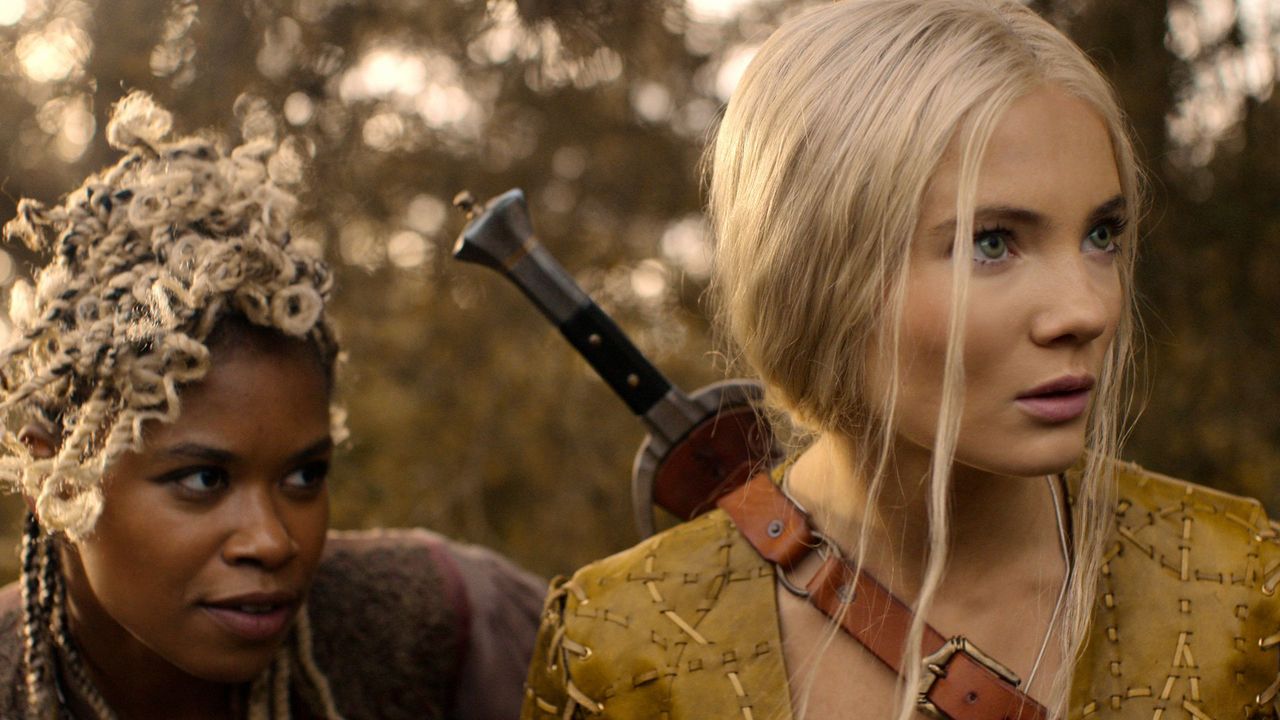The final season of Stranger Things reveals the dark truth of our society’s battle against unseen horrors, mirroring the escalating cultural wars that divide us today. The fight against the monstrous forces of the Upside Down is a reflection of our own struggles against the demons of division and fear.
As Halloween approaches, Netflix has unveiled the first trailer for the fifth and final season of its iconic series, Stranger Things. This release comes at a time when the show’s themes resonate deeply with contemporary societal issues, drawing parallels between the fictional horrors of the Upside Down and the real-life challenges faced by communities today. The series has captivated audiences since its debut, blending nostalgia with horror, and its final season promises to deliver a climactic conclusion to the saga of Hawkins, Indiana.
In the trailer, fans are greeted with familiar faces as the beloved characters prepare for one last stand against the terrifying creatures that inhabit the Upside Down. This season is particularly significant, as it not only marks the end of a beloved series but also serves as a commentary on the nature of fear, community, and resilience in the face of overwhelming odds. The residents of Hawkins, much like individuals in our society, must confront their fears and unite against a common enemy, a theme that resonates strongly in today’s polarized environment.
The release schedule for the final season is also noteworthy. The first four episodes will premiere on November 26, followed by three additional episodes on December 25, and culminating with the grand finale on December 31. This staggered release strategy is designed to build anticipation and keep viewers engaged during the holiday season, a time traditionally associated with family gatherings and reflection. However, it also raises questions about the nature of binge-watching culture and its impact on viewer engagement and community discourse.
Stranger Things has always been more than just a horror series; it has served as a cultural touchstone, reflecting the anxieties and hopes of its audience. The show’s creators have expertly woven elements of 1980s pop culture, science fiction, and horror into a narrative that speaks to the universal human experience. The Upside Down, with its dark and twisted landscape, symbolizes the fears that lurk beneath the surface of everyday life. It represents the unknown, the chaos that can erupt when societal norms are challenged, and the monsters that can emerge from within ourselves.
As the final season approaches, fans are left to ponder the implications of the show’s conclusion. Will the characters find a way to overcome the darkness that threatens to consume them? Or will they succumb to the very fears they have fought against? These questions mirror the struggles faced by many in today’s society, where divisions seem to deepen and the battle against misinformation and fear continues to rage.
The themes of community and resilience are particularly poignant in the context of the ongoing cultural wars that have become a hallmark of contemporary discourse. Just as the characters in Stranger Things must band together to confront the horrors of the Upside Down, individuals in society are called to unite against the forces that seek to divide them. The show serves as a reminder that, even in the face of overwhelming darkness, there is strength in unity and hope in the fight against fear.
Moreover, the series has sparked discussions about the nature of heroism and the moral complexities of its characters. Each character embodies different aspects of the human experience, from courage and loyalty to fear and betrayal. As viewers prepare for the final season, they are invited to reflect on their own values and the choices they make in their lives. The characters’ journeys serve as a mirror, prompting audiences to consider how they confront their own fears and the monsters that exist in their lives.
The anticipation surrounding the final season of Stranger Things is palpable, with fans eagerly discussing theories and speculating about potential outcomes. Social media platforms have become a breeding ground for debate, as viewers share their hopes and fears for the characters they have grown to love. This engagement reflects the show’s impact on popular culture and its ability to foster a sense of community among fans.
As the premiere date approaches, the excitement is tempered by a sense of nostalgia and loss. The end of Stranger Things marks the conclusion of an era for many viewers who have followed the series since its inception. The show has not only entertained but has also provided a space for reflection on deeper societal issues, making it a significant cultural phenomenon.
In conclusion, the final season of Stranger Things promises to deliver a powerful narrative that resonates with the current state of society. The battle against the monstrous forces of the Upside Down serves as a metaphor for the struggles faced by individuals and communities today. As viewers prepare to say goodbye to Hawkins and its beloved characters, they are left to ponder the lessons learned and the enduring power of hope in the face of fear.
Just in time for Halloween, Netflix has released the first trailer for the fifth and final season of their always-spooky hit series, Stranger Things. The gang’s all here as the residents of Hawkins, Indiana make one last desperate stand against the monstrous denizens of the hellish Upside Down. The first four episodes will premiere on Netflix on November 26, the next three will drop on December 25, and the grand finale will drop on December 31.




